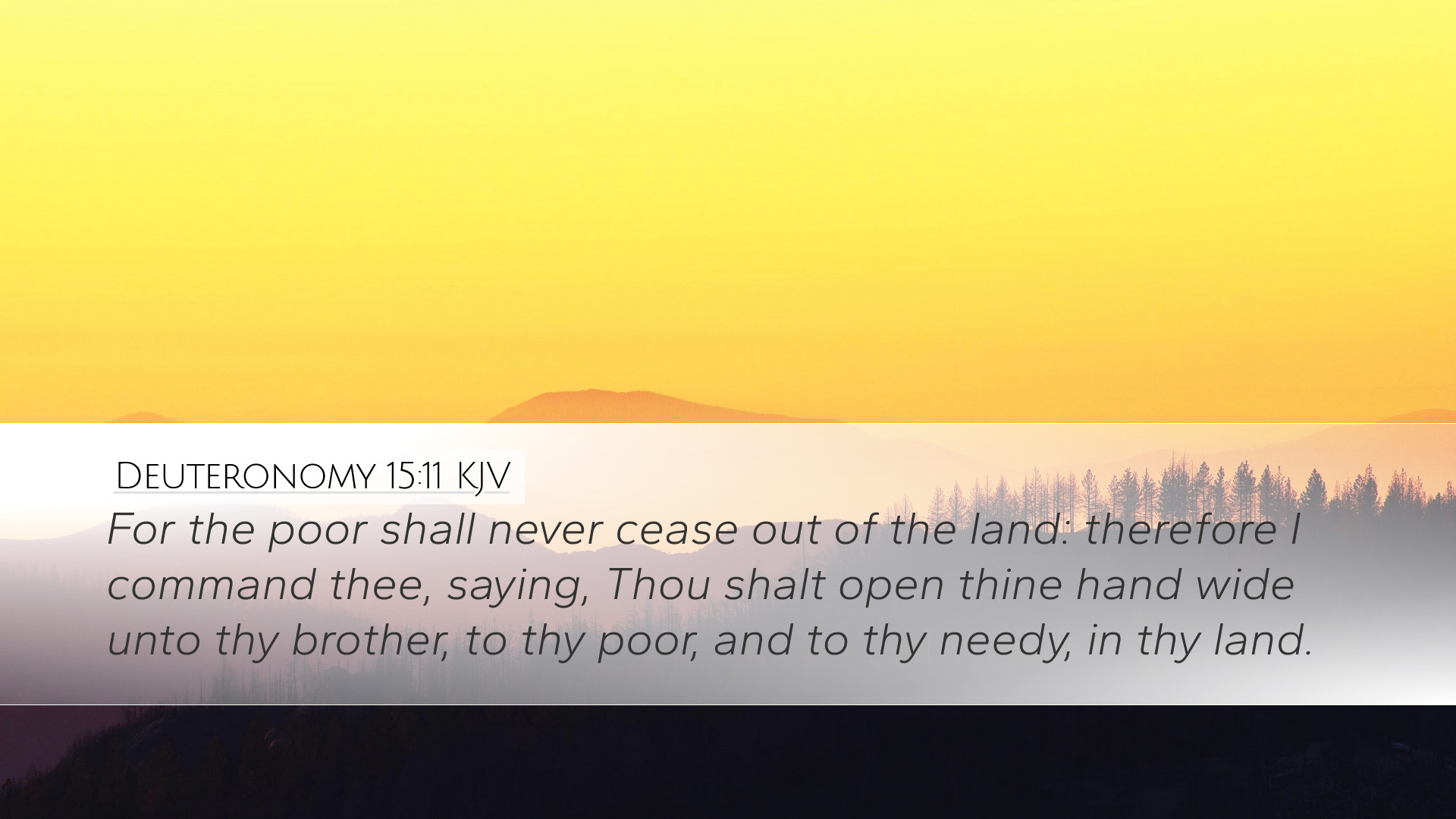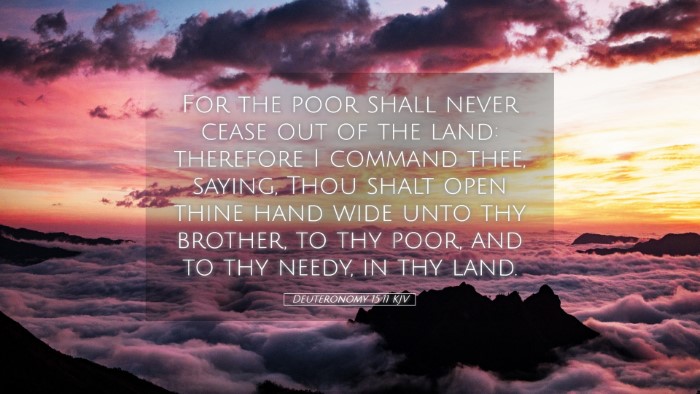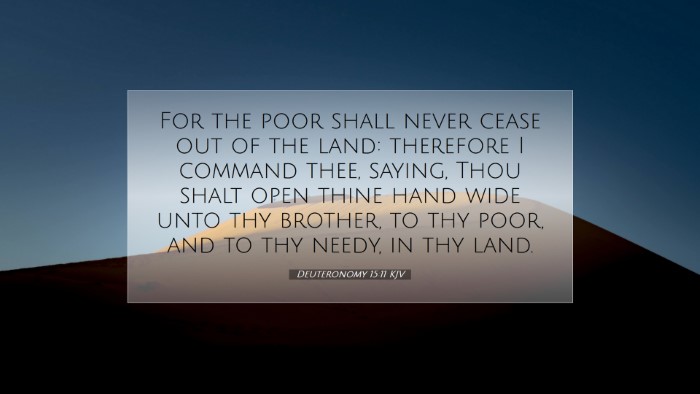Bible Commentary on Deuteronomy 15:11
Verse Reference: Deuteronomy 15:11 - "For there will never cease to be poor in the land. Therefore I command you, you shall open wide your hand to your brother, to the needy, and to the poor, in your land."
Contextual Background
Deuteronomy, a pivotal book in the Pentateuch, encompasses the final speeches of Moses to the Israelites as they prepare to enter the Promised Land. Within these chapters, social justice, ethical living, and community responsibility emerge as recurring themes, underscoring the importance of caring for those in need.
Theological Implications
This verse explicitly acknowledges the existence of poverty as an enduring element of society. The command to "open wide your hand" reflects both a divine expectation and a call to compassionate action among the faithful.
Insights from Matthew Henry
Matthew Henry emphasizes the inevitability of poverty, asserting that it is part of the human condition and warning against complacency in societal structures. He interprets the command as a divine mandate to foster generosity and to build a community characterized by mutual support.
- Generosity as a Command: It is not merely an act of kindness but a duty required by God.
- The Steadfast Nature of the Poor: Henry notes the perpetual presence of the poor, suggesting a cyclical nature of poverty that reflects deeper societal issues.
Insights from Albert Barnes
Albert Barnes provides a practical approach to understanding this verse. He emphasizes the necessity of having an open hand towards others, particularly during times of distress or need.
- Charity in Action: Barnes discusses that charity should not be conditional. The poor are to be aided regardless of circumstances.
- Spiritual Responsibility: Barnes notes that Christians today are also called to respond generously to the underprivileged, reinforcing the continuity of this command from the Old Testament into the New Testament.
Insights from Adam Clarke
Adam Clarke delves into the cultural and historical context of the command. He cites the agricultural practices of the Israelites and the socio-economic factors that contributed to poverty.
- The Role of the Land: Clarke highlights that the land's productivity was tied to the community's faithfulness to God’s laws, implying that collective righteousness impacts everyone's well-being.
- Holistic Compassion: Clarke encourages modern readers to consider how systemic injustices contribute to poverty, urging a more informed and empathetic response to the needs of the poor.
Application for Pastors and Theologians
This verse serves as a foundation for understanding the church's role in advocating for social justice and compassion. Pastors are called to speak out against poverty and inequity, encouraging their congregations to engage actively in community service and charitable acts.
- Preaching Generosity: Sermons can be framed around this verse to inspire practical actions within the community.
- Educational Initiatives: Creating programs that address systemic issues related to poverty—mental health, education, and employment—can foster a more comprehensive approach to charity.
Reflection for Students and Scholars
Students and scholars are encouraged to engage with this text not merely as an ancient command but as a directive that echoes through modern socio-economic discussions.
- Critical Analysis: Examining how different socio-economic structures affect the presence of poverty today can provide valuable insights into the text’s contemporary relevance.
- Interdisciplinary Approach: Incorporating perspectives from sociology, economics, and theology can enrich one’s understanding of the imperative to care for the poor.
Concluding Thoughts
Deuteronomy 15:11 invites a transformative perspective on community and individual responsibility towards the poor. As we reflect on these insights from Matthew Henry, Albert Barnes, and Adam Clarke, may we strive to embody an open-handed spirit, responding to the divine call for compassion and justice in every generation.


